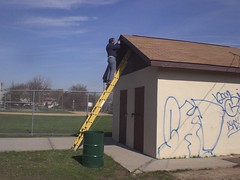
- Read An Opinion On:
- Dural Irrigation Website
As soon as they have done feeding they will probably return back into hiding where they can stay right until their next serving.
Signs and Symptoms of Bed Bug Bites!
The first indication of insect bites, it’s typical to assume that the bites were from either a insect, or a flea.However, bed bug bites are often identifiable when you know exactly what to look around for.A symptom of bedbug bites are flat, elevated welts underneath the skin that are itchy. After that, a person really should administer an antiseptic cream, take an oral antihistamine or put on a suggested anti-biotic skin cream(such as Cortaid Intensive Therapy Moisturizing Cream) to help get rid of the itch and begin healing the rash. Benadryl, Zyrtec and Claritin are all oral antihistamines that could be used to help improve the itchness. Antiseptic gels with a blend of diphendrydramine to help with the itching and pramoxine to help with the ache are highly effective treatments of bed bug bites.
Avoid Getting Bitten Again?
To exterminate the infestation and stop yourself from getting bitten once more, a good thing for you to do should be to look over your sleeping quarters, verify yourbedbug infestation and then speak to a professional bug control company for bedbugs extermination. Bedbug exterminators will understand the uneasiness that you will be suffering from and will know just how to eliminate them to provide you with freedom. It’s vital to start to get rid of them as soon as possible to stop the spread of them to neighboring bedrooms in your condo. A group ofbedbug exterminator specialists will have the practical knowledge and technological know-how to get rid of the bedbug infestation problem very quickly! They will incorporate a combo of pesticides and non-pesticide options to kill the bed bugs.
They will supply suggestions to empty out all shelves and seal clothing and sheets inside sealable storage containers or bags prior to the visit. You’ll need to thoroughly clean all bedding and clothing in hot water with tempuratures over 113 to kill the bed bugs. On the day of treatment, the bedbug exterminators will arrive and do a careful check, have a look at the bed mattresses, box springs, bedframes and cabinets for signs of bed bugs and tell you of the magnitude of bedbug infestation. Right after they have determined that you do have bedbugs they will require crystal clear access to all baseboards and furniture to be able to spray bedbug insecticide to kill them. They will spray the cracks and crevices, floor boards and proceed through a series of other stages to kill them. They will supply you with instructions in order to help to get rid of them such as vacuum-cleaning the rugs and carpeting along with different spots that they will hide, such as any cracks and crevices in the wall and the seams of the bed mattresses to terminate all nymphs or eggs. Though, you may want to dump out your mattresses completely and substitute it with a brand-new one! An additional recommendation is to encase all remaining mattresses in a bed bug proof mattress protective cover for long term bedbug protection and management.
The moment your house has actually been cared for, keep an eye out for any recurrence of bed bugs in case you need a second treatment of bedbug pesticide.
Treatment of Bedbug Bites!, How Do You Stop the Itch From Bedbug Bites?
Article Source: sooperarticles.com/home-improvement-articles/pest-control-articles/how-do-you-stop-itch-bed-bug-bites-603434.html
About Author:
Eliminate the Itchiness from Bedbug bites by making use of these suggestions. For more details on bed bug bite medication, have a look at –Author: Deidra Cer



